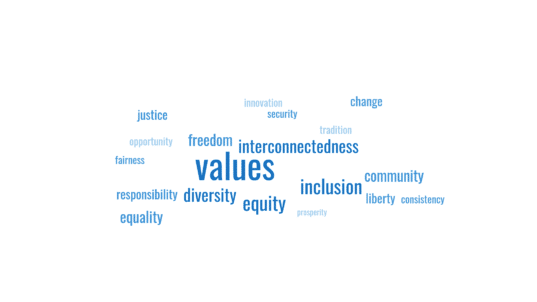Near the end of the rock documentary The White Stripes Under Great White Northern Lights, the White Stripe’s frontman, Jack White, talks about the importance of obstacles and tensions for his creative process (here’s an unofficial clip; the video quality is not great, so it’s best to let it load fully before you play it). In his performances, White intentionally sets things up so that he’ll have to work harder, as a way to keep the experience fresh and to spur spontaneity and creativity in the moment. He uses the same old hard-to-keep-in-tune guitars that he was using ten years ago. He keeps his extra guitar picks across the stage, far enough away so that they’re not too handy if he needs one. He keeps the organ at a distance so he has to go out of his way to play it during a song. He and drummer Meg White don’t come out with a preplanned setlist. In essence the White Stripes deliberately try to structure the performance experience to build tensions, to make it harder, to make it a struggle, so each show has “its own life to it.” If everything was all perfectly laid out and preplanned, “then nothing would happen.” It would just be like a prefab “boring arena set.”
The Interactivity Foundation’s discussion process is intended to foster creativity in the generation of broad-thinking and contrasting policy possibilities for our society. This isn’t an easy thing to do. It’s often a struggle for panelists and facilitators alike to figure out how to move forward. The ideas, questions, and insights that come up don’t always seem to fit together. Nor do they always make perfect sense, even to the person who brings them up. They might be something a person is puzzling over in his or her mind. In such situations it’s easy to feel lost or nervous about how to proceed. What the White Stripes can help us remember is that this uncertainty, this tension, these obstacles, might be precisely the things that spur spontaneity and creativity in our discussions. It’s a sign that the discussion experience has its own life to it.
For facilitators, this means resisting the impulses to make things easy, the urge to minimize obstacles that panelists face as they’re grappling with complex questions. It means resisting the notion of having a preplanned setlist for how the discussion will flow. For panelists, this means recognizing the value of being puzzled. It can be a good sign when you can’t figure things out. When you feel stymied trying to figure out some aspect of our social life together, that’s a sign you’re working hard, you’re really engaging your creative thinking abilities. And if you’re working hard like that, it can mean that inspiration or breakthrough is near. In describing his creative process, Jack White says that sometimes it is just hard work, something you just have to do. The results aren’t always great. It’s not like every time, just by working at it that “the clouds are gonna part and the rays from heaven are gonna come down.” But, as he says, “inspiration and, you know, work ethic, they ride right next to each other.” As you struggle in the discussion process, remember, inspiration might be riding right there with you.
–Jeff Prudhomme



